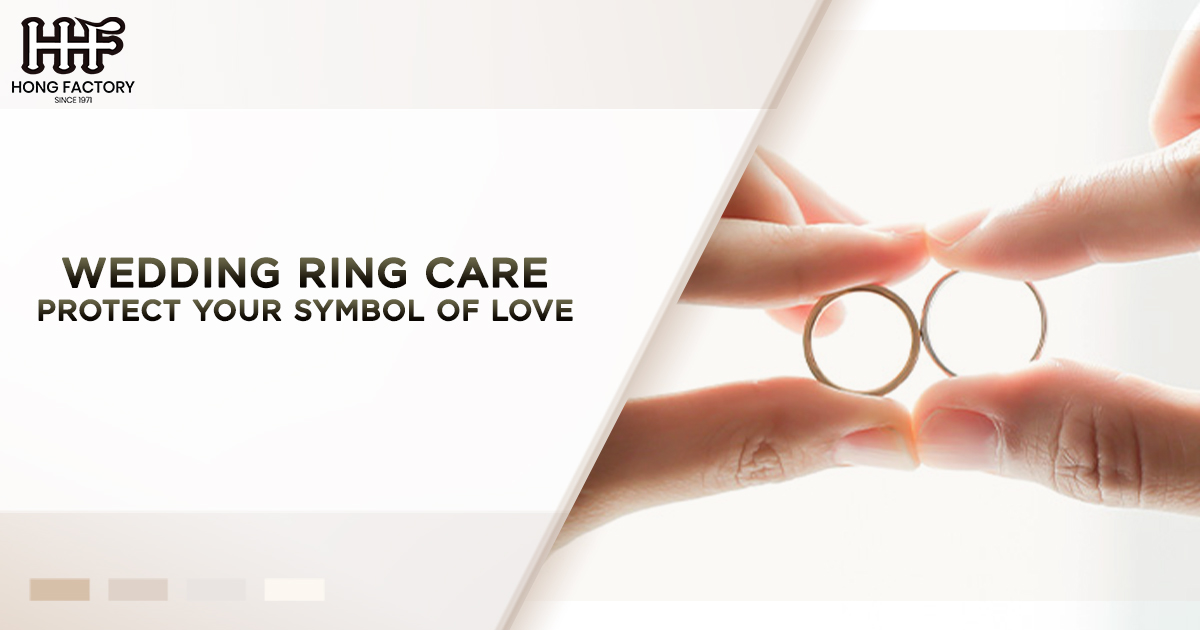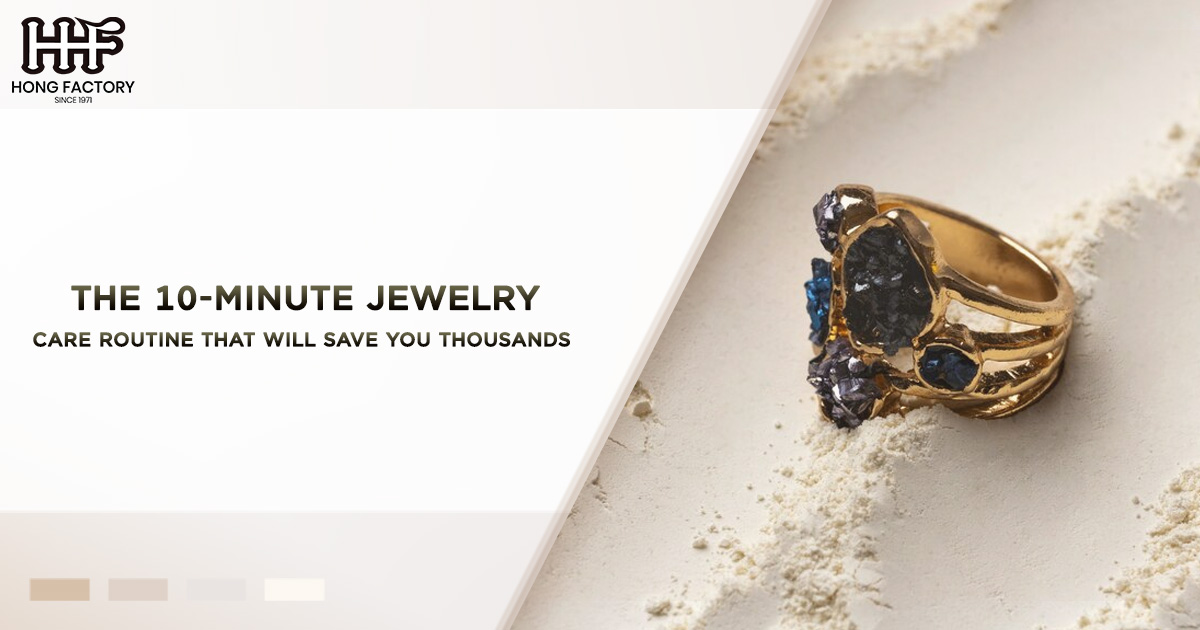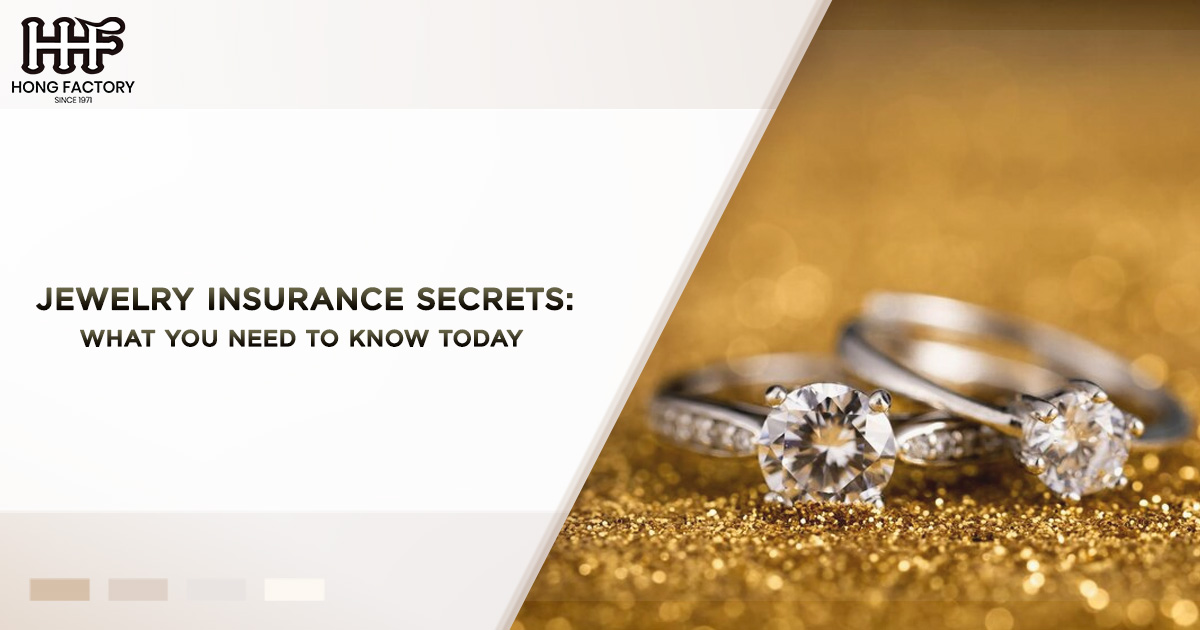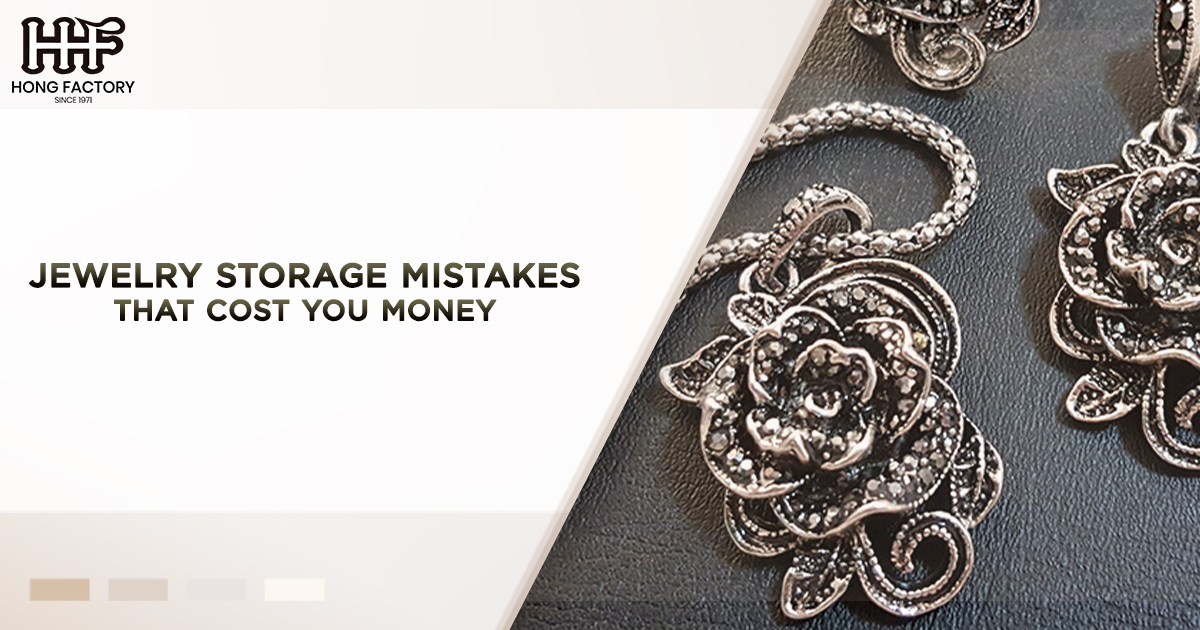Wedding rings are more than just jewelry; they are a lifelong symbol of love and commitment. Maintaining their beauty, ensuring their longevity, and preserving their emotional value requires proper attention to ring care. Whether you’ve recently tied the knot or are wearing a wedding band you’ve cherished for years, understanding how to protection your wedding rings can help ensure they stay as radiant as the day you exchanged them.
In this article, we will guide you through essential practices for daily care, activity-specific precautions, professional maintenance, and emergency care. Follow these tips to ensure your wedding ring remains a timeless reflection of your love.
Daily Care – Protectioning Your Wedding Rings Every Day
Taking care of your wedding rings starts with a consistent daily routine. Being mindful of how you wear, store, and clean your rings is crucial for keeping them in pristine condition.
Regular Cleaning at Home
One of the easiest ways to care for your wedding ring is through gentle daily cleaning. Dirt, oils, and lotions can quickly build up on your ring, dulling its shine. To maintain its sparkle
- Use warm water and a mild dish soap. Soak your ring for 15–20 minutes.
- Gently scrub with a soft toothbrush to remove grime.
- Rinse thoroughly, and pat dry with a lint-free cloth.
Avoid using harsh chemicals or abrasive cleaning products, as they can damage the metal or loosen gemstones.
Remove Before Applying Products
Lotions, oils, perfumes, and other personal care products can leave residues on your wedding rings, dulling their brilliance. Always remove your ring before applying skincare or makeup products and wait until they are fully absorbed before putting your ring back on.
Proper Storage
When not wearing your wedding ring, store it in a fabric-lined jewelry box or a separate compartment to prevent scratches. For added protection, consider wrapping it in a soft cloth or placing it in a soft pouch.
Activity Guidelines – When and Where to Remove Your Wedding Rings
Your wedding ring is designed to be worn every day, but certain activities can put it at risk of damage. Knowing when to take it off can help protection it from unnecessary exposure to harm.
During Physical Activities
Engaging in physical activities like exercising, cleaning, or gardening can expose your wedding ring to dirt, impact, or pressure that could dent or warp the metal. Remove your ring before
- Weightlifting or using gym equipment.
- Participating in contact sports.
- Handling heavy-duty tools or objects.
Keeping your wedding rings safe during such activities prevents scratches, bends, and surface damage.
In Water
Water—whether from the dish sink, swimming pool, or ocean—poses different risks to your wedding ring
- Chlorinated pool water can dull the metal and gemstones.
- Saltwater can corrode specific metals and loosen stone settings.
- Slippery soap suds or cold water can shrink your fingers, making it easy for the ring to slip off.
Remove your ring before swimming, showering, or washing dishes.
While Cooking or Baking
Cooking with raw ingredients (e.g., dough, meat, or sticky sauces) can cause grime to accumulate on your ring. Wearing gloves or removing your ring before these activities can prevent damage and keep the ring hygienic.
At Night
Some individuals prefer keeping their wedding rings on at all times, but you may be surprised by how sleeping can affect your ring. Tossing and turning can exert subtle pressure or snag prongs on your bedding. Removing your ring before bed can prevent unnecessary wear and tear.
Professional Maintenance – Keeping Your Wedding Rings in Top Condition

While regular cleaning and mindful activities go a long way, professional maintenance is essential for the long-term beauty and durability of your wedding rings. Here’s what you need to know
Annual Inspections
Visit a professional jeweler annually for a thorough inspection of your wedding rings. They can
- Check for loose stones, cracks, or worn-out prongs.
- Tighten settings to ensure gemstones remain secure.
- Assess the condition of the metal and polish it to restore its original shine.
This proactive approach to ring care helps catch and fix minor issues before they escalate into costly repairs.
Professional Cleaning
Even with diligent home cleaning, wedding rings can accumulate dirt in hard-to-reach areas. At least twice a year, have your ring professionally cleaned. Jewelers use ultrasonic cleaning and steam cleaning equipment to give your ring a deep, polished finish.
Replating or Refinishing
For white gold or platinum wedding rings, consider periodic replating. White gold rings, for instance, are coated with rhodium, which can wear off over time. Replating restores shine and protection the ring’s surface.
Emergency Care – What to Do If Your Wedding Ring is Damaged or Lost
Despite your best efforts, accidents happen. A damaged or lost wedding ring can feel like a catastrophe, but knowing how to handle emergencies can help minimize additional stress.
Address Damage Immediately
If your wedding ring is bent, scratched, or the gemstone setting is loose, stop wearing it immediately to prevent further damage. Take the ring to a jeweler as soon as possible for repair. Continuing to wear a broken ring risks losing gemstones or worsening the issue.
Retrieve Lost Gems
If a gemstone falls out, try to locate it immediately, as prompt recovery increases the likelihood of a successful repair. Store the gemstone in a padded cloth or container and bring it to your jeweler with the ring for reattachment.
Replacing a Lost Ring
Losing a wedding ring can be emotionally devastating. To avoid this, insure your wedding rings through a jewelry insurance policy that covers loss, theft, and damage. If the worst happens, your policy can help you replace the ring with minimal financial strain while maintaining sentimental value.
Have a Backup
Consider having a backup ring (a less expensive or simple version of your original wedding ring). This way, you’ll always have a symbol of your love to wear in case of emergencies.
Additional Tips for Long-Term Ring Care
Avoid Exposure to Harsh Substances – Chemicals like bleach, ammonia, and acids can corrode wedding rings over time. Remove your ring when cleaning with such substances.
- Be Cautious with Temperature Changes – Extreme temperatures can expand or contract certain metals, causing stress on gemstone settings.
- Rotate Bands and Rings – If you wear an engagement ring and wedding band together, periodically switch their positions to reduce wear.
Investing in proper care and professional maintenance ensures your wedding rings remain as beautiful as the day you said, “I do.”
Conclusion
Your wedding rings represent a deep emotional connection, and keeping them in excellent condition reflects the love and commitment they symbolize. By following daily care routines, adhering to activity-specific precautions, scheduling professional maintenance, and staying prepared for emergencies, you can protection your wedding ring for years to come.
Remember, wedding ring care is not just about its physical appearance; it’s about cherishing the sentiment it carries. Treat your rings with the love and respect they deserve, and they’ll continue to shine as a powerful reminder of your bond.



